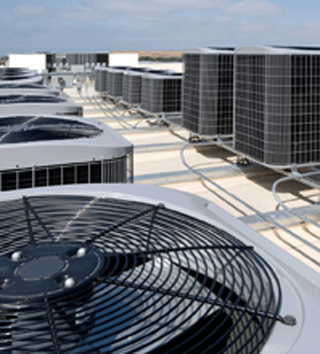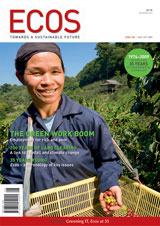
|
Published:
HFCs ‘low hanging fruit’ in climate change mitigation
Reducing the use of hydrofluorocarbons (HFCs) to prevent them becoming a major contributor to global greenhouse gas emissions could be done relatively easily if action is taken quickly, say researchers in a recent Proceedings of the National Academy of Sciences paper.1

|
|
Rising use of air-conditioning and refrigeration in developing countries has the potential to make HFCs a significant greenhouse gas. Credit: iStockphoto/Craig Cozart
|
The researchers say the use of HFCs – introduced to replace ozone-depleting CFC and HCFC gases2 currently being phased out under the Montreal Protocol – could climb sharply in future due to accelerating demand from developing countries for refrigeration and air-conditioning gases and insulating foam products.
Under a scenario where global carbon dioxide emissions are capped at 450 parts per million (ppm), HFC emissions could reach nine gigatonnes – equivalent to around 45 per cent of total CO2 emissions under a 450-ppm scenario – by 2050 if their growth is unchecked. However, rapid action to cap and cut HFC emissions by 4 per cent annually, along with fostering readily available alternatives, could see them fall to under one gigatonne by 2050.
Achim Steiner, head of the UN Environment Programme (UNEP), believes rapid action to reduce HFC emissions represents a ‘low hanging fruit in the climate change challenge’.
‘By some estimates, action to freeze and then reduce this group of gases could buy the world the equivalent of a decade’s worth of CO2 emissions,’ he says.
Since the late 1980s, under the UNEP-administered Montreal Protocol, 97 per cent of 100 chemicals known to damage the UV-filtering ozone layer have been phased out.
1 Veldersa GJM et al. (2009) The large contribution of projected HFC emissions to future climate forcing. PNAS 106, 10949–10954. www.pnas.org/cgi/doi/10.1073/pnas.0902817106
2 Chlorofluorocarbons (CFCs), hydrochlorofluorocarbons (HCFCs)



